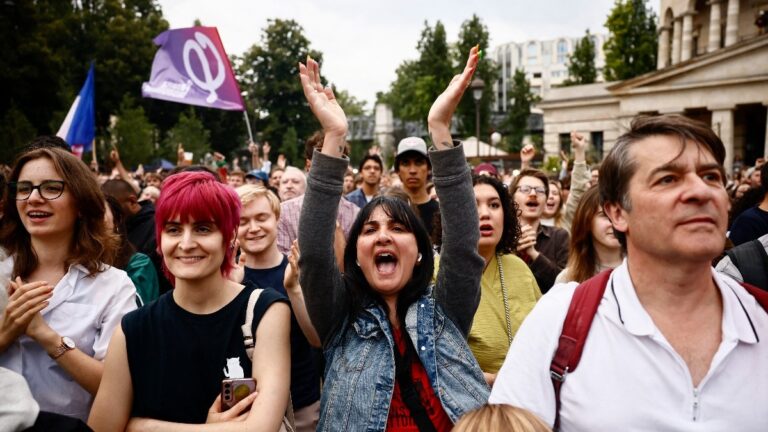More than one billion people have already voted in 2024, with more elections planned. This year, about 70 countries and the European Union will hold elections, involving almost half of the world’s population. The global political landscape is shifting, and it has never been more important.
Political Changes: Left, Right, Center
Right-wing growth: Far-right parties are becoming more popular in Europe: France’s Rally National party performed well in recent elections, and Italy and the Netherlands currently have right-wing governments.
The left wins: In South Korea, the Liberal Party won a landslide victory, and in France, the left-wing New Popular Front is a major force in the National Assembly.
Challenges for the centre-right: France called new elections after its centrist parties struggled to gain traction, while coalition governments in India and South Africa have stressed cooperation and a desire for change.
Why is this important?
Globally, voting patterns show that people everywhere want something different. Even national leaders who have been able to hold on are less popular than they were before. This shows that many people are looking for new leaders and new ideas.
The numbers behind the story
- Total population affected: 4.24 billion.
- National elections: Held in 52 countries, with over 3.7 billion people participating.
- European Parliamentary Elections: Held in 16 countries, around 297 million people voted.
- European countries holding EU and national elections: 11 countries with a population of over 168 million.
A year of great change
The European Union is seeing a notable shift in voter sentiment, with right-wing parties making significant gains in the 2024-2029 European Parliament elections. But countries such as France and the UK are bucking the trend and presenting a more mixed political picture.
The European Parliament elections, held from June 6 to 9, were the second largest democratic elections in the world after India. As the only directly elected body in the EU, the European Parliament plays a key role in shaping policy by negotiating legislation, approving the budget, and voting on international agreements and EU enlargement, so the results of these elections will be particularly influential.
Jordan Bardella of the French far-right party National Rally was elected president of the new far-right group “Patriots for Europe” in the European Parliament. The National Rally joins the Patriots group as the largest national delegation with 30 EU MEPs. Far-right groups, specifically the European Conservatives and Reformists (ECR) and Identity Democrats (ID), won more than 140 of the 720 seats in Parliament.
However, countries such as France and the UK are bucking the right-wing trend and presenting a more complicated political landscape. In the recently concluded French elections, the left-wing New Popular Front won 182 seats, while incumbent President Macron’s centrist coalition fell to 163. The National Rally and its allies came in third with 143 seats. However, neither side was able to surpass the 289-seat majority required.
A similar story unfolded in the UK, where Keir Starmer and his reinvigorated Labour Party won a landslide victory, going from 202 seats in 2019 to a whopping 412 seats this year. They ended 14 years of Conservative rule and moved the government to a centre-left party. Starmer’s campaign was centred on transforming the party by breaking away from the party’s far-left wing and presenting a “changed Labour” to voters.
Meanwhile, in South Korea and Senegal, parties seeking to fix things and stop corruption won. In South Korea, the largest opposition party, the Democratic Party (DP), won, taking most of the 300 seats in the National Assembly, while the ruling People’s Power Party won only 108 seats. In Senegal, opposition candidate Bashir Diomae Faye won over 54% of the vote in the presidential election. In contrast, the ruling coalition candidate Amadou Ba won 36% of the vote. Interestingly, Faye was released from prison for anti-government protests just 10 days before the election results were announced.
In countries such as India and South Africa, ruling parties maintained power but lost seats, forcing them to expand their coalitions or add new coalition partners.
Future plans
There are many important elections coming up, including the US presidential election. What happens in these elections will have an impact not just on these countries, but on the entire world. So far, 2024 polls show deep political divisions in a growing number of places.

